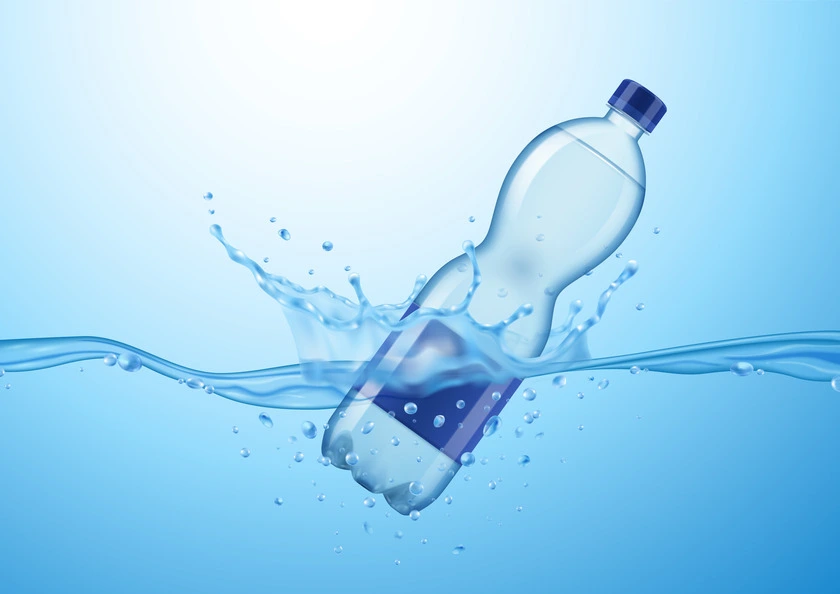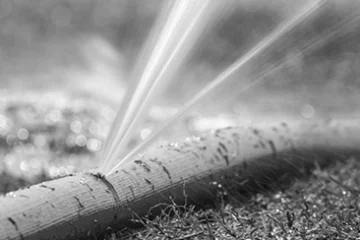Water is an essential element in our daily lives, and its source can significantly impact our well-being. When it comes to water supply, two common options are well water and city water. Both have their advantages and disadvantages, making it crucial to understand the difference between them.
In this comprehensive guide, we’ll delve into the disparities between well water and city water, helping you make an informed choice for your home.
Well Water: Nature’s Hidden Gem
What is Well Water?
Well water is a natural source of water found beneath the Earth’s surface. It is typically accessed by drilling a well into the ground until it reaches an underground aquifer.
This aquifer acts as a reservoir, holding water that can be pumped to the surface for various uses.
Well water pros and cons
Pros of Well Water
- No Water Bills: Well water users don’t receive monthly water bills, saving them money in the long run.
- Fresher and Nutrient-Rich: Well water is often fresher, high in nutrients, and rich in minerals, as it comes from underground aquifers. This can provide a cleaner and healthier water source.
- Protection During Natural Disasters: Wells are typically less vulnerable to contamination during natural disasters, ensuring a more reliable water supply during such events.
Cons of Well Water
- Electricity Dependency: Well water relies on electric pumps to function. If the power goes out, you may lose access to water until power is restored or alternative power sources are used.
- Maintenance Responsibility: Property owners are responsible for maintaining their wells, which includes repairs and, in some cases, additional drilling. Maintenance costs can be substantial.
- Contamination Risks: Well water can become contaminated by various sources, including chemicals, sewage, and runoff. Regular water testing is the responsibility of the well owner to ensure water quality.
City Water: Convenience Comes at a Price
What is City Water?
City water, also known as municipal water, is supplied by local governments to homes and businesses through a network of pipes. This water is typically treated at a centralized facility to meet safety and quality standards.
City Water pros and cons
Pros of City Water
- Quality Assurance: City water undergoes purification and testing processes, ensuring that it meets or exceeds EPA quality guidelines. The responsibility for water quality lies with the city, reducing the homeowner’s burden.
- Availability: City water is readily available in most urban and suburban areas, making it accessible to a large population.
- Mortgage Benefits: Mortgage lenders often prefer city water due to its reliability and regulation, which may lead to better lending terms for homeowners.
Cons of City Water
- Less Fresh: City water is sourced from runoff and surface water, potentially exposing it to more pollutants and chemicals. Extensive filtration and chemical treatment can affect its taste compared to well water.
- Cost: City water bills have been rising nationally due to increasing pollution and treatment expenses. Homeowners may find it an expensive utility over time.
- Service Interruptions: City water can be turned off by the municipal authority, whether due to non-payment or the need for unexpected treatment. Homeowners have limited control in such situations.
- Contamination Risk during Disasters: Natural disasters can lead to large-scale contamination of city water supplies, requiring treatment and boil water advisories, which residents must follow.
Difference between Well Water and City Water
When deciding between well water and city water, it’s crucial to understand the key distinctions:
| Aspect | Well Water | City Water |
|---|---|---|
| Source | Groundwater | Municipal supply |
| Taste | Crisp and natural | May contain chlorine |
| Cost | No monthly bills | Monthly water bills |
| Purity | Generally pure | Treated for safety and quality |
| Maintenance | Requires regular upkeep | Minimal personal maintenance |
| Contaminant Risks | Possible, but can be mitigated with care | Strictly regulated and monitored |
| Availability During Outages | Depends on well condition | Generally more reliable during outages |
Well Water and City Water: Which Should you Choose
If you are considering well water, it is important to have your well tested regularly to ensure that it is safe to drink. You may also need to treat your well water to remove contaminants.
If you are concerned about the cost of city water, there are many things you can do to reduce your usage, such as installing water efficient appliances and fixing any leaks.
Ultimately, the best way to decide which type of water is right for you is to weigh the pros and cons of each option and consider your personal preferences.
Key Factors for Your Decision
Here are some additional things to consider when making your decision:
- Your location: If you live in a rural area, well water may be your only option. However, even if you live in an urban area, there may be some neighborhoods that are not connected to the municipal water supply.
- Your budget: Well water can be free or very low cost, especially if you already have a well on your property. However, you will need to budget for regular testing and maintenance. City water can be expensive, especially if you use a lot of water.
- Your health: If you have any health concerns, such as a weakened immune system, you may want to choose city water, as it is more likely to be free of contaminants.
- Your environmental concerns: Well water can be a more environmentally friendly option, as it does not require the use of chemicals in the treatment process. However, if your well is not properly maintained, it could contaminate the groundwater.
Conclusion
In the choice between well water and city water, your decision should align with your preferences, budget, and the specific conditions of your property. Both options offer unique advantages and drawbacks, so it’s essential to weigh them carefully. Well water provides natural purity and cost savings but demands maintenance, while city water offers convenience and consistent quality but comes with monthly bills. Ultimately, the difference between well water and city water lies in your priorities and needs.
Frequently Asked Questions (FAQs)
Is well water safe to drink?
Yes, well water can be safe to drink if regularly tested for contaminants and properly maintained. It often starts as pure groundwater but can become contaminated without proper care.
Does city water contain chemicals?
City water is treated with chemicals like chlorine to ensure safety and quality. While these chemicals may affect taste, they are within regulated limits.
Which is more cost-effective, well water, or city water?
Well water typically involves lower long-term costs since there are no monthly bills. However, initial well drilling and maintenance expenses should be considered.
Can I switch from well water to city water or vice versa?
Switching water sources is possible but may involve significant infrastructure changes and costs. Consult local authorities and experts for guidance.
How often should I test my well water?
Regular testing, at least once a year, is recommended for well water to ensure its safety and quality.
Is it possible to have a well for outdoor use and city water for indoor use?
Yes, some homeowners opt for this hybrid approach to enjoy the benefits of both water sources.






[…] many rural areas, well water is the primary source of water. Most people choose well water because it is easy to obtain or less […]
[…] The quality of well water is influenced by a combination of factors, and depth alone does not singularly determine its overall quality. Various elements, including geological conditions, local environmental factors, and human activities, play crucial roles in shaping the characteristics of well water. […]
[…] cases where well water consistently interacts with calcium carbonate (limestone), there is a consequential increase in the […]